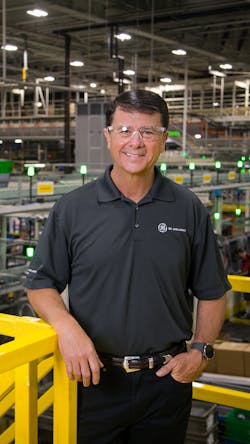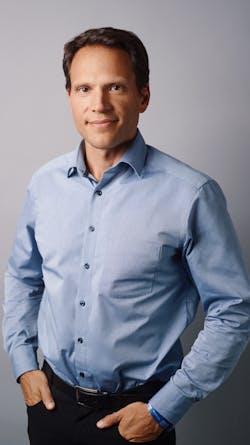Career Advice: My Biggest Mistake and What I Learned from It (Part 2)
The IndustryWeek Talent Advisory Board offers monthly advice on how its members got to where they are in the manufacturing world. They offered so much great advice for April that we're breaking it into two parts, with half of the responses running yesterday (Thursday, April 27, 2023) and half running today (Friday, April 28, 2023). If you have a question for the group, please send it to [email protected]. This month's question was:
What’s the biggest mistake you made early in your career, and what did you learn from that experience?
Beware Big Paychecks, Fancy Titles
One of my biggest mistakes came early in my career, when I left a manufacturing company to pursue an opportunity at a small, tier-one automotive supplier.
On the surface it looked like a great opportunity that offered me a bigger title and a 50% increase in compensation. For an early career manufacturing leader, a 50% compensation increase was massive. I was so enamored with the title and the compensation that I fell woefully short of doing adequate research on the company. Within one month, I realized I had made a tremendous mistake.
It became increasingly clear why the company was paying at the higher end of the scale and put the title of division manager on a role that was actually smaller than the one I left. What I quickly discovered was the company was poorly led and had a culture that was unproductive, confrontational and extremely combative. Everyone spent more time arguing and covering themselves than working collaboratively toward winning goals. Once in my new role, I soon felt I was stuck for a couple of years because I wanted to prove I could be successful even in the most dire circumstances.
After two years passed, I allowed myself to return some recruiting calls for better opportunities that aligned more closely with my values. Needless to say, I never made the mistake of chasing a title or compensation again in my career. Since this early mistake, I have been very intentional in doing my due diligence about the company and overall culture first before I ever consider the role or compensation.
Always take the time to ask questions in the interview process to evaluate for yourself if you are the right fit for the company culture. The salary and title will come through hard work, perseverance and building a broad-based business acumen as well as your personal brand..
Every step in your career might not be a promotion. It’s OK to leave a company for a great career opportunity, but stay focused on the big picture and mapping your career path along the way without getting caught up in the emotion of short-term gains.
Negotiate for What You Need
Audrey Van de Castle, Director of Digital Transformation - Operations Excellence, Stanley Black & Decker Inc.My biggest mistake was NOT negotiating! Early in my career, I did not really understand that negotiating things like salary, vacation time and bonuses were the norm when job hunting. I was afraid that I would get turned down! I was lucky enough to have a mentor who helped give me the confidence to negotiate for a higher salary with a company I had an offer from. I gave it a shot, and they didn’t even hesitate—they gave me what I asked for right away! After that I realized, wow, I had left some money on the table in the past for sure. Moral of the story—it can’t hurt to ask.
Work with a Team
Saso Krstovski, Master Black Belt, Ford Motor Co.The biggest mistake I made early in my career was feeling that I had to solve issues all by myself to justify my relevance to management.
Early in my career, I made many mistakes, and I continue to make mistakes. Judgment errors should not be looked at as mistakes, but more like experiments. In experimentation, you try something and based on the outcome, you either accept it or change it to ensure the desired outcome is achieved.
As I matured in my career, I made fewer mistakes and learned not to repeat the same mistake. In addition, I became less sensitive to fearing previous errors in judgment would prevent me from making critical decisions.
As a novice engineer, I enjoyed the challenge as a problem-solver and felt my relevance was to quickly and single-handedly resolve any concern that was in front of me. Very quickly, I learned on several occasions that I either did not have the knowledge or capability to resolve something on my own and needed help. It became clear that teamwork is more effective, and the solutions that arise from it, more innovative.
Teamwork and collaboration are two components necessary in any field for success. As a seasoned professional, I can assure you the term “credit” is significantly misused. Getting acknowledged in a team environment is more rewarding than individualized recognition.
Find a Mentor, Meet Regularly
Proactively seek out and formalize mentorship. I had a lot of great informal mentors in my early career and always worked to engage and network with others, but I made the mistake of not intentionally seeking out and formalizing mentors. While so much of an early professional career role is learning and development and less direct value creation, I felt cautious to seek even more mentorship and the time of leaders. I look back now and can think of several people who I would have learned even more from if I had established a reoccurring mentorship with intention. Even if formalizing is as casual as a quick coffee once a quarter, you have it on the calendar and you are both accountable to it. Now on the flipside, I have had the opportunity to be a mentor. It is greatly fulfilling, introspective and not a burden.
Click here to read responses to March's question: What is the best piece of career advice you received within your first five years on the job in your current industry?
Embrace Education, Broaden Your Perspective
As someone who has been in the workforce for just over three decades, I can say that I have made my fair share of career mistakes over the years. My failure to pursue an MBA early on in my career was one of my greatest mistakes. I worked for General Electric for the first 14 years of my career and participated in the company’s leadership development initiatives, such as the Manufacturing Management Program (GE MMP) and the extensive training at GE Crotonville. While these programs provided me with extensive leadership development training and experience, they were highly company-specific and centered on the company’s culture at the time.
Obtaining an MBA earlier in my career would have enhanced my skills beyond the company’s foundational training. I would have gained a broader perspective and a deeper understanding of business principles valuable to any company or industry, and perhaps had even more doors open to me.
It is important to remember that your career is a long-term investment in yourself, despite the temptation to focus solely on your current job and employer’s demands. Obtaining an MBA or another advanced degree would have helped me become an even more effective and well-rounded leader and perhaps opened more doors to new opportunities.
However, by gaining perspective from this experience and remaining open-minded and curious, I’ve continued growing and evolving as a leader through self-study. I eagerly anticipate the challenges and opportunities that lie ahead for me, even at this late stage of my career. “Stay hungry and never stop learning” is the best advice I can give anyone, regardless of where they are in their career.
See the Big Picture: Solutions, Not Problems
I started my career in IT. I worked hard to give the best possible service and advice, always being upfront about potential gaps and roadblocks with my stakeholders. One day, my boss came to me and told me that he felt that I was coming up with problems rather than solutions. He said I was too focused on the IT issues and that I wasn’t seeing the big picture. This was a big realization for me. It taught me to reframe challenges to see the big picture and that I could add value by finding a path forward.
About the Author
IW Talent Advisory Board
An expert panel of manufacturing leaders offering advice on how to advance your career.
Beginning a career in any industry is challenging, and many people early in their journeys in manufacturing need advice on how to advance and reach the next milestone. IndustryWeek’s Talent Advisory Board collects manufacturing leaders who rose through the ranks and are happy to share stories and advice on how they got to where they are now. This group includes senior-level people and young leaders who advanced quickly in their organizations. They work for large companies or run their own businesses, representing a wide swathe of careers within manufacturing.
Every month, we ask the group a new question about their careers or life experiences. If you have a question for the group, please send it to IndustryWeek [email protected].






